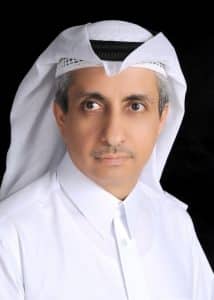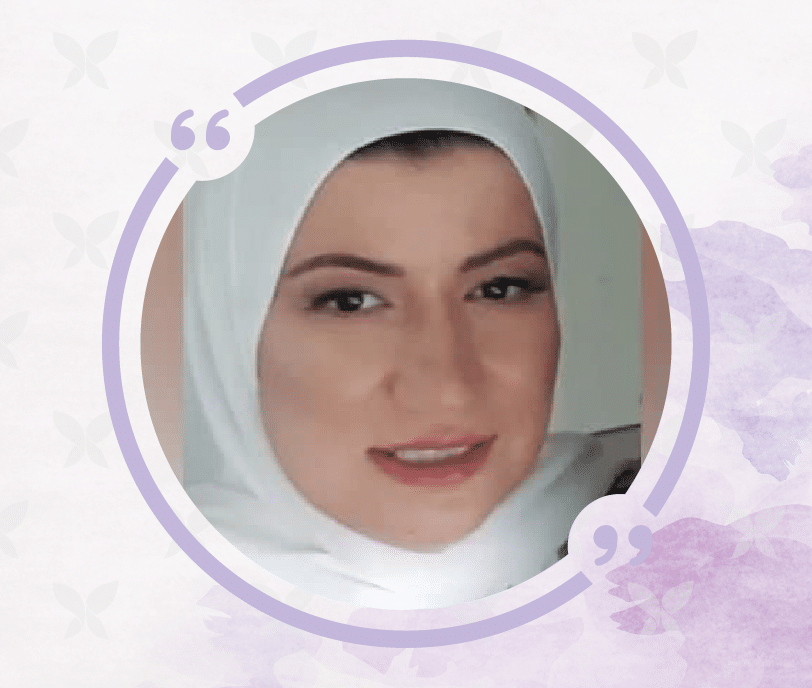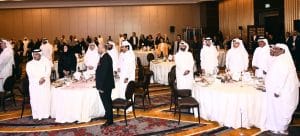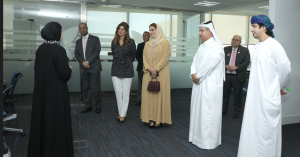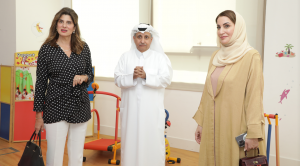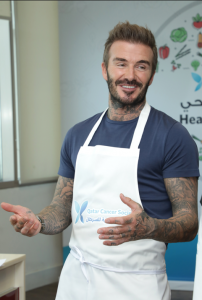After a long and exhausting workday, Mawya began to feel some stiffness in her neck. When this stiffness persisted and started hindering her movements, Mawya sought medical help. After ruling out bone pathology, Mawya was prescribed muscle relaxants and advised to pursue physical therapy. Determined not to let her pain affect her work and productivity, Mawya continued to go to her physical therapy sessions despite noticing a progression in her pain. She completed several sessions before she began to feel a fever.
Mawya continued seeking medical advice, at which point she felt the pain spread to her limbs and pelvis. After several tests, scans, and conflicting diagnoses later, Mawya was referred to an oncologist, who recommended a mammogram. When a lump was found on her mammogram, Mawya was in denial. She was unsure how it spread to the lymph node and caused pain in her bones. Worried and confused, Mawya looked to the people around her for guidance. Many of her friends and family gave her suggestions on various therapies she could try– herbs, supplements, cupping, and acupuncture. Maya tried several of these alternative therapies but to no avail. Finally, Mawya contacted a few physicians to get her lymph node biopsied.
She was admitted to NCCCR, where her pain worsened exponentially, necessitating her taking potent analgesics and receiving intravenous infusions as she intensely disliked food. Still, without a confirmed diagnosis, Mawya convinced herself she had cancer. She remembers the biopsy vividly. It seemed like a simple procedure to the staff, but to her, it was enormous. She opted for local anesthesia, fearing the complications of generalized anesthesia, but she did not anticipate the impact her first procedure would have on her. She subsequently needed a psychologist to help her overcome this “simple” traumatic experience.
Before she knew it, medical personnel were talking about treatment plans. No one thought to stop and talk with her through the diagnosis. For some reason, everyone assumed she already knew. One doctor told her she was lucky to have a “good” variant of breast cancer. Maya did not feel lucky at all. She felt shocked. She had previously led a healthy lifestyle; she exercised regularly, ate healthy foods, did not smoke, and did not even own a microwave. She felt overwhelmed. She could not comprehend the huge amount of treatments and procedures she was supposed to endure later due to the spread of the disease in her body and reaching the fourth stage.
With time, Mawya realized this was a test from Allah, and her relationship with her creator grew stronger. Was this diagnosis a message? Was there a lesson she needed to learn? She began to see life in a new light, finding new meanings in every part of her journey.
Mawya also acknowledges that her journey would have been infinitely harder without the support of the people around her. She could not forget the kindness and care of her radiation therapy team and the medical team at National Center for Cancer and Research NCCCR.
Even with their hectic schedules, they never failed to make time to ensure Mawya’s comfort in whatever way they could. She remembers a specific technician who, noticing that Mawya’s hijab was sliding off her hair, took the time to adjust it despite her identifying with another religion. Maya explains that such small gestures, though they might seem trivial to medical professionals, leave a significant mark on patients. Another encouraging part of Mawya’s journey was the inspirational stories of other cancer survivors that her sister would read to her throughout her treatment. She hopes that her story will serve the same purpose for others.
Ms. Mawya continued to go to the hospital and receive chemotherapy, where all the staff at Al-Amal Hospital were of the highest level of efficiency, helpfulness, and kindness, facilitating all stages of treatment.
Mawya started listening to her body well, preferring not to listen to unwanted and conflicting advice around her. She felt her body was asking for comfort, food, and mental health. She has realized the importance of self-care after years of believing that self-love and self-prioritizing are selfish. Now, she cares about the things she loves more; she read many books, learned the art of crochet and coloring while in bed, and practiced Meditative breathing and yoga; all these activities helped her a lot in the recovery journey.
The most important message she realized was to appreciate the blessings that seem small, but they are much more than we can thank God for them. During her illness journey, she lost the ability to walk alone, eat, taste, smell, shower, and many other things that man considers for granted, some of them because of the disease and others because of the medicines used. However, thankfully today, after three years of diagnosing the disease, Mawya regained her senses and ability to move, returned to practice her life naturally, and, most importantly, realized the value of life and learned that every day lived is a gift to be appreciated and celebrated. A man should remember to deal with body, mind, and spirit humanely and respectfully as she deals with the most precious loved ones. She realized that man should enjoy accompanying, appreciating, and understanding himself more. The most important thing is to forgive yourself and decide that every day will be better than the day before. When you love yourself and appreciate all your experiences, you can love and be grateful to your God and appreciate everything around you.
Every harsh experience takes you to a higher level of self-awareness, where you rearrange your being, make yourself a more affluent person on a spiritual level, and create a masterpiece that adds a magical touch to your life.
You may be depressed by the hurricane of pain you pass through. Instead, you should fly with the wind as a feather and speak to Allah with your soul; Allah will send you a light that takes you out of the storm; try to be flexible and practice something new that you love to forget the pain until the crisis passes quietly and creates you as a newborn man like a stone of diamond that shines and become brighter and charming as it is refined.




